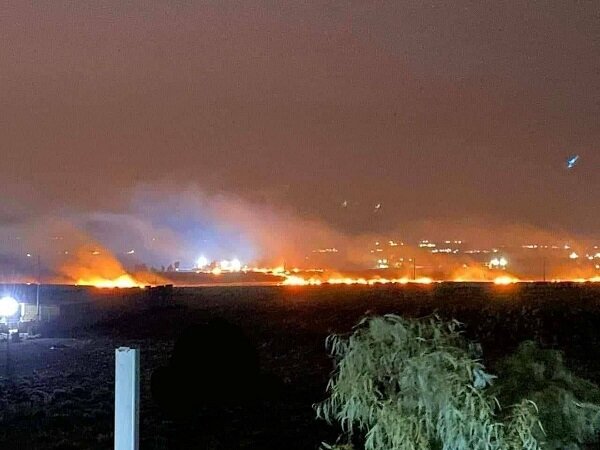Comparing the military approach of Iran and Israel from the perspective of international ethics.
Finally, on the evening of Sunday, April 14th, the missile units and drones of the Islamic Revolutionary Guard Corps Aerospace Unit targeted military targets in the occupied territories by firing more than 300 ballistic missiles, cruise missiles, and attack drones. Although the defense system of the Zionist regime countered part of Iran’s attack, some sources report that Navatim and Ramon’s bases were targeted in the Negev desert.
The balance of power in the Middle East region changed once again in favor of the Islamic Republic of Iran and the axis of resistance, when during this “legitimate attack”, the decision-making authorities targeted the depth of the occupied territories based on Article 51 of the United Nations Charter. The point that perhaps more than any manifestation of the “Vada al-Sadegh” operation has attracted the attention of some analysts and general audiences is that the Iranian armed forces did not target any civilian or even diplomatic center in response to the Zionists and followed the basic principles of war. They adhered to the classics. Based on this, in the continuation of this note, we will try to examine Iran’s responsible response to the illegal and terrorist attack in Damascus.
During the last twenty-four hours, the headlines of all the reliable regional-international media and think tanks have been dealing with Iran’s legitimate response to Israel’s terrorist attack in Damascus and its possible consequences for the security of the Middle East. A group of analysts considered this attack as a necessary and stabilizing measure that could stop the extravagance and aggression of the Zionists against the countries of the region.
Another group rejects this theory and believes that Iran’s counter-response can be abused by the Zionists and cause the beginning of a new season of direct conflict between Tehran and Tel Aviv. Regardless of the above two approaches, what seems certain is that the Islamic Republic of Iran fulfilled its promise of “revenge” and, at the same time, respected the moral principles of protecting the lives of civilians and civilian places, contrary to the traditional policy of the Israeli army.
Despite some doubts regarding the interpretation of the Israeli attack on the Iranian consular building in Damascus, finally, the senior leaders of the regime, along with international law experts, considered the Zionist terrorist attack in Syria as an attack on Iranian soil and based on the principle of “legitimate defense” under Article 51 United Nations charter, nine “attacks” responded to the action of the Israeli army.
During this attack, although the IRGC could destroy the infrastructure and military barracks of Israel, it preferred to target the occupied territories based on necessity and simply to restore the balance between the two sides. In other words, the attack on Sunday evening was not an attempt to deliver the “final blow” to Israel, but an attack aimed at creating deterrence and redrawing the fire lines with Tel Aviv. Understanding the above point will help the audience to correctly analyze Iran’s attack on Israel and the need to avoid expanding the scope of the war.

